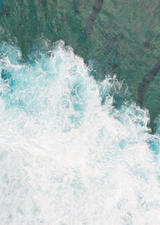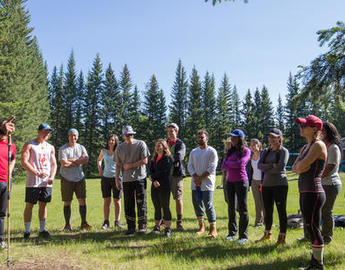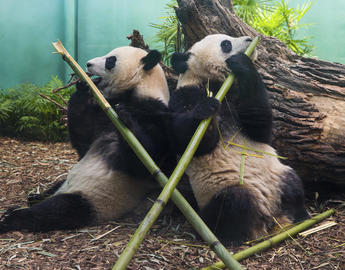
Goal 15: Life on Land
Protect, restore and promote sustainable use of terrestrial ecosystems, sustainably manage forests, combat desertification, and halt and reverse land degradation and biodiversity loss
Research

The Biogeoscience Institute
This research institute offers researchers two field stations: the Barrier Lake Station, located in the Kananaskis Valley, and the R.B. Miller Station, located in Sheep River Provincial Park. These stations engage in extensive research on animal ecology and wildlife conservation biology, vegetation dynamics and forestry, ecosystem sustainability and environmental economics, and human, domestic animal and wildlife disease interactions. This institute hosts not only UCalgary academic courses, but also courses from the University of Saskatchewan, University of Regina, SAIT and Wilfred Laurier. Learn more.

Environmental Processes and Natural Resources Research Group
This research group studies our natural environment and its resources, with strengths in spatial analysis and habitat modelling. Faculty members and graduate students have contributed to research projects that identify and manage habitat for a variety of wildlife species, and restore specialized habitats. Projects include satellite-based forest monitoring and landcover mapping, landscape ecology, wildfire impacts and the conservation of sensitive species. Learn more.


Teaching, Learning and Student Experience

Land-Based Learning Experiences
Annually, the Werklund School of Education offers optional land-based experiences to Bachelor of Education students in Indigenous Education. Accompanied by instructors and guided by a Kainai Elder, students hike, visit sacred sites and learn about Indigenous and land-based education. Students experience Indigenous knowledge systems and imagine a sustainable shared future together. Learn more.

Importance of Animals in Indigenous Culture
As part of new co-learning partnership between the Stoney Nakoda First Nation and UCalgary's Faculty of Veterinary Medicine (UCVM), vet students visited a school in the Morley community to discuss animal health. The initiative fosters a relationship with the community and allows for two-way learning; Morley students learn about veterinary science and UCVM participants learn about Stoney Nakoda culture and their perspective around animal health. Learn more.




